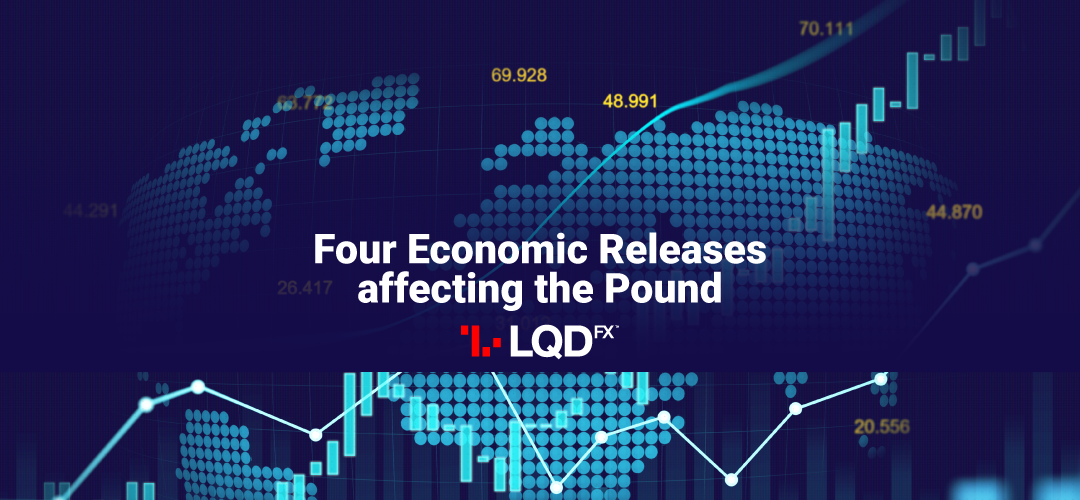Four economic releases that affect the pound are presented below. Trading around economic indicators can be a key challenge for the Forex trader.
Knowledge of the events affecting each currency and pairs of currencies is vital in Forex trading. Unless data is not predicted, the market normally reacts quietly. Often, traders focus more on political debates captured in headlines. Below you can find the four economic releases for the events with the most impact to the UK currency.
Four Economic Releases affecting the Pound: UK Consumer Price Index (CPI)
CPI measures the change in the price of goods and services from the consumer aspect over time. It is a key measure of purchasing trends and inflation. In UK, the Office for National Statistics (ONS) is responsible for the preparation and the release of CPI. The CPI calculates the average price increase as a rate for a basket of 700 different goods and services. The “shopping baskets” of items used in compiling the various measures of UK consumer price inflation are reviewed each year. The choice of the goods and services has to reflect changes in society’s buying habits. The CPI is the official measure of inflation of consumer prices.
START TRADINGBank of England Rate (BoE) Announcement
The monetary policy of each central bank affects the national currency. Thus, the monetary policy adopted by the BoE affects directly the pound. For instance, decisions for interest rates have a strong impact on a currency. Thus, investors shall keep an eye on this announcement for any monetary policy changes.
The Monetary Policy Committee (MPC) of BoE decides what monetary policy action to take, setting and announcing policy 8 times a year. Further, the quarterly Inflation Report explains the reasons behind monetary policy decisions.
UK GDP
The primary measure of economic activity in the U.K., as in many other countries, is the gross domestic product (GDP). In general, analysts consider GDP as the widest measure of the overall health of an economy. It measures the change in the inflation-adjusted value of all goods and services produced by the economy in one year. Besides, it is the key indicator for judging whether an economy is healthy or not. A fact about the complex nature of GDP is that when it is published most of its parts are already known. However, analysts read stronger than expected GPD data as positive for the GBP. Yet, analysts read lower than expected data as negative to the GBP.
The Office for National Statistics (ONS) releases Estimates of GDP on a monthly and quarterly basis. ONS release the Preliminary GDP estimate first. In addition, it tends to have the biggest impact because it gives traders a first look into the economic health of the U.K.
UK Unemployment rate – Average weekly earnings
The last one of the four releases affecting the pound is one of the main indicators of economic performance. Employment directly relates to the health of the economy along with inflation. The Unemployment Rate measures the rate of the total unemployed work force seeking employment. Besides, Labour Force Survey (LFS ) measures the number of unemployed people in the UK. LFS includes people who meet the international definition of unemployment specified by the ILO.
The Average Weekly Earnings (AWE) statistic provides estimates of monthly and annual change for the main industrial sectors. Further, it measures the changes in employees’ average weekly earnings. Actually, AWE is the lead monthly measure, not including earnings of self-employed people.
Experts read a higher than expected reading as negative/bearish for the GBP. On the contrary, they read a lower than expected reading as positive/bullish for the GBP.
Sources: Wikipedia, investing.com, BoE, Investopedia, Reuters
PLEASE NOTE The information above is not investment advice.
